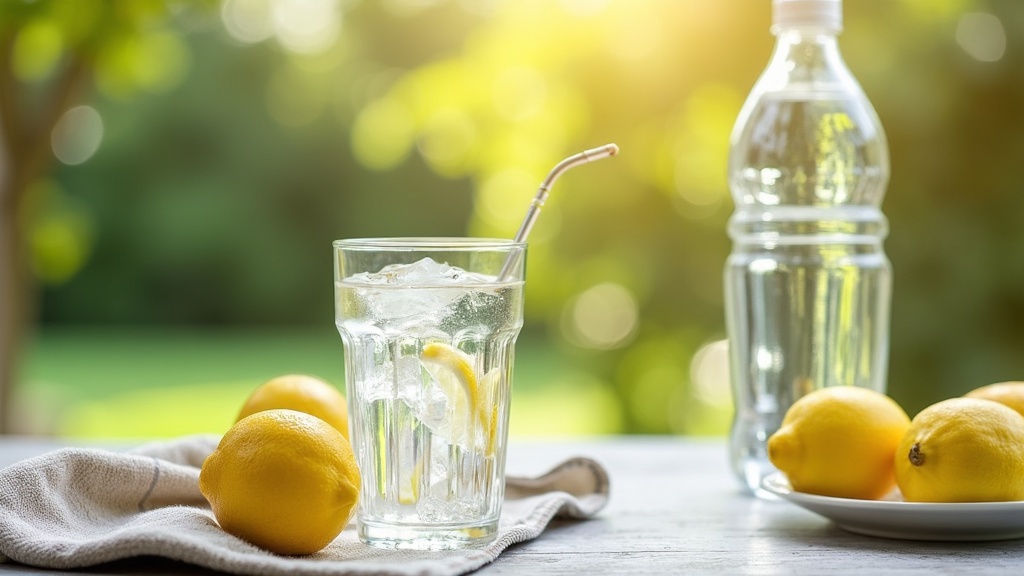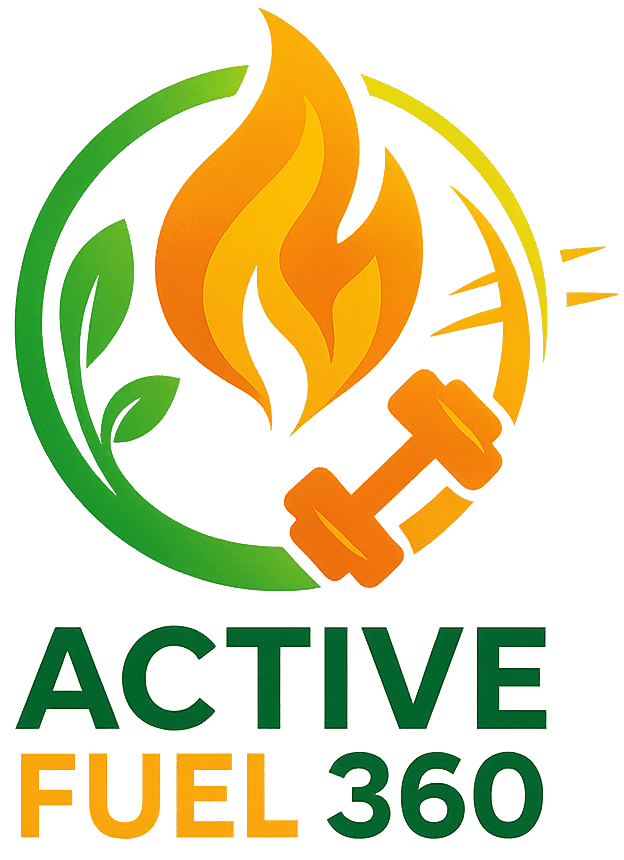Water goes way beyond just quenching your thirst. If you care about your health and want to get the most out of your workouts, staying hydrated is one of the simplest habits you can build. Everything from your energy, brain function, and even your mood relies on getting enough water. I’m breaking down why water is so important and sharing my favorite practical tips for working it into your daily routine, especially if you’re trying to boost your fitness or just feel better day to day.

Why Water Matters So Much for Your Body
Every part of your body needs water to do its job. Water makes up more than half your body weight and helps with almost everything, from keeping your joints moving smoothly to helping your organs filter out waste. It cools you down when you’re hot, supports blood flow, helps balance your mood, and keeps your digestive system flowing properly.
Most folks have heard that you can go weeks without food but only a few days without water. That’s because water is involved in just about every process your body runs. If you’re not getting enough, it doesn’t take long for things to start feeling off. Headaches, tiredness, brain fog, and even grouchiness are all signs you might need a hydration boost.
Hydration and Fitness: How Water Impacts Your Workouts
If you like going for a run, heading to the gym, or joining a fitness class, keeping a water bottle close by is incredibly important. Exercise causes you to sweat, and that means you’re losing water as well as important minerals called electrolytes. Dehydration can make you feel sluggish, slow your reaction time, and can lead to cramps or dizziness.
- Regulates Body Temperature: Sweating keeps your body from overheating. If you’re low on water, your temperature can rise quickly and make workouts feel tougher.
- Boosts Energy and Endurance: If you’re tired halfway through your workout, even being a little dehydrated can zap your stamina, making it much harder to finish strong.
- Reduces Recovery Time: Hydration delivers nutrients to muscles and removes waste, so you bounce back faster after tough sessions and feel less sore the next day.
The American Council on Exercise shares that losing just 2% of your body weight in fluids can seriously impact your performance (ACE Fitness).
What Happens When You’re Not Drinking Enough?
It’s easy to slip into dehydration without even realizing it. Your body doesn’t always shout for water right away. Some common signs include a dry mouth, headache, dark yellow pee, tiredness, dry or tight skin, and feeling dizzy. You might also have trouble focusing, experience mood swings, or get that weird feeling where you think you’re hungry but you’re just thirsty.
If you push your body during a workout and haven’t had enough water, you can end up with muscle cramps and a longer recovery time. That’s one reason a lot of athletes, fitness fans, and even people just starting out keep water handy during all kinds of exercise.
Everyday Hydration Tips for Busy Folks
Drinking enough water can feel tricky with a busy day, but simple changes help a ton. I’ve picked up a few habits that made it easier for me to bump up my hydration without overthinking it:
- Keep Water Handy: Always have a refillable bottle near you. When it’s right there, you’re more likely to sip throughout the day.
- Start Your Day Strong: Drink a glass of water when you get up. It wakes you up and gets the habit rolling right away.
- Add Some Flavor: Slices of lemon, cucumber, berries, or even a splash of juice make water more appealing without piling on the sugar.
- Set Periodic Reminders: Use your phone or watch to remind you to drink regularly, especially if your schedule is packed or you tend to forget.
- Pair With Meals: Make it a habit to drink a glass before each meal. It helps you stay hydrated and may curb overeating.
Understanding How Much Water You Need
There’s no one-size-fits-all answer, but a common guideline is the “8×8 rule”—eight 8-ounce glasses (a little under two liters) a day. If you’re active, sweat a lot, or live somewhere warm, you might need even more. Listen to your body—thirst is one signal, but checking the color of your urine (aiming for pale yellow) is another simple way to check if you’re on track.
Special situations, like pregnancy, breastfeeding, or an illness, can mean your needs jump up. The U.S. National Academies of Sciences recommends about 3.7 liters a day for men and 2.7 liters for women, which counts all beverages and the water from food (National Academies Press).
Hydration Myths and Facts
- Myth: Only Water Counts. Actually, plenty of drinks and even juicy foods (like fruits, veggies, and soup) contribute to your total hydration. Just be aware that sugary or highly caffeinated drinks aren’t always the best pick.
- Myth: If You’re Not Sweating, You’re Not Losing Water. Even at rest, you’re using up water every time you breathe or head to the bathroom.
- Fact: Feeling Thirsty Means You’re Already Low. Thirst is a late alert for your body, so sipping water regularly before you get that dry-mouth feeling is smart.
Extra Tips for Athletes and Workout Fans
Sometimes plain water isn’t enough, especially if you’re sweating for an hour or more or exercising in intense heat. This is when it’s helpful to think about electrolyte drinks, which help replace sodium, potassium, and other minerals lost with sweat. You don’t always need a sports drink—simple snacks like bananas or salty crackers can help too. For serious training and long events, plan your hydration in advance. You might even try weighing yourself before and after exercise to check how much fluid you’ve lost.
- Drink Before You Exercise: Aim for 16-20 ounces roughly two hours before working out to give yourself a hydration boost.
- Sip During Exercise: About 7-10 ounces every 10-20 minutes should keep you going, and you might need more if it’s really hot or your session is especially sweaty.
- Refill After: For every pound you lose during exercise, try to drink 20-24 ounces of fluid to aid in full recovery.
Common Challenges and How to Beat Them
- Forgetting to Drink: Consider using a water-tracking bottle or an app. I also found that linking water breaks to routine tasks—like before checking emails or after every meeting—made it easier.
- Bored of Plain Water: Beyond adding fruit, try sparkling water or mix in a little bit of 100 percent juice to switch things up.
- Busy Schedules: Fill up a big bottle at the start of your day. That way, you can keep tabs on your progress and avoid running dry when life gets hectic.
What If You Drink Too Much?
It doesn’t happen often, but chugging massive amounts of water in a short time can actually cause you to lose important minerals, especially sodium. This is called hyponatremia and can be serious. Spreading your water intake throughout the day instead of drinking a ton all at once is safer and more effective.
The Real-Life Benefits I’ve Noticed
After focusing on hydration, I noticed changes in my workouts, mood, and general health. I had fewer mid-afternoon slumps, my irritability dipped, and I could focus better during work. My skin even looked brighter and less dry, particularly in winter months. If you’re battling tiredness, headaches, or mood swings, giving your water intake some extra attention could make a quick difference.
- Smoother Digestion: Proper hydration ensures your digestion works well, helping with issues like constipation or bloating.
- Better Focus At Work: Staying well hydrated helped clear up mental fog and boosted my productivity during long work stretches.
- More Balanced Mood: Hydration helped keep my mood steady, cutting down on cranky or anxious episodes that came from getting too thirsty.
Frequently Asked Questions
Question: How can I tell if I’m hydrated enough?
Answer: Your urine color says a lot—if it’s pale yellow, you’re probably good. Also, if you aren’t constantly thirsty or tired for no reason, you’re on the right path.
Question: What counts toward my daily water intake?
Answer: Many options count—water, milk, tea, 100 percent fruit juices, and even fruits and veggies with high water content. Coffee works, but go easy on sugar and caffeine.
Question: Can drinking more water help me lose weight?
Answer: Sometimes thirst gets confused with hunger. Water can help with snack cravings and feeling full at meals. It won’t melt pounds by itself but is a strong support for weight goals.
Question: Do I need sports drinks for most workouts?
Answer: Usually, plain water is all you need for exercise under an hour. If you’re working out longer or in the heat, tossing in some electrolytes is a good idea.
Wrapping up, drinking enough water is one of the simplest and most effective ways to take care of your body. By making hydration a daily habit, you’ll boost your energy, sharpen your focus, and get more out of every workout and day, no matter your lifestyle.

